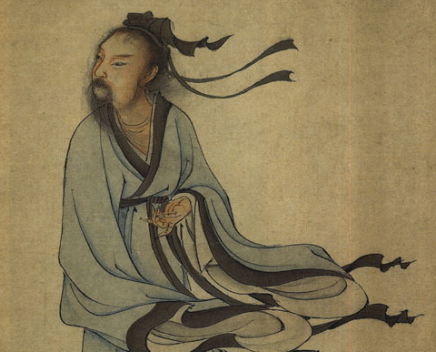Liezi, a mysterious name, occupies an important position in the history of Chinese philosophy. He is respected as one of the important representatives of the Taoist school, and is known as the "Three Ancestors of Taoism" along with Laozi and Zhuangzi. However, he is not a figure of the Confucian school, which is crucial when discussing his philosophical thoughts.

The historical records of Liezi's life are not detailed, and there are many controversies. Some say that he was a figure from the late Spring and Autumn period to the early Warring States period, named Lie Yukou, a hermit from a noble family. His identity and life background enabled him to deeply consider many issues of life and society, thus forming his own unique philosophical system.
Liezi's philosophical thoughts are mainly reflected in his book "Liezi", which is also one of the Taoist classics. The book integrates thinking in various fields such as natural philosophy, cosmology, and political philosophy, demonstrating Liezi's profound understanding and pursuit of the "Tao". He believes that the "Tao" is the origin of all things in the universe and the fundamental principle governing the operation of nature and human society. Liezi advocates following nature, governing with inaction, and emphasizing inner tranquility and indifference towards external things.
Although Liezi's life was rarely involved in political and social affairs, his thoughts have had a profound impact on later generations. His views such as "governing with inaction" and "quiet inaction" not only influenced the development of the Taoist school but also provided important ideological resources for later political theories and philosophical reflections.
Although Liezi's life story is not as widely known as his philosophical thoughts, his achievements are indelible. His philosophical thoughts transcend the social environment of his time, touching on universal issues of human life, and providing unique insights into understanding the relationship between man and nature, as well as man and society. Liezi's thoughts not only occupy a place in traditional Chinese culture but also have an important position in the history of world philosophy.
In summary, Liezi is a philosopher of the Taoist school. Although his life is mysterious, his philosophical thoughts have illuminated the ages. His book "Liezi" is still widely studied today, and his thoughts have had a profound impact on later generations. Liezi's achievements are not only reflected in his contribution to Taoist philosophy but also in his profound insights and inspiration to human civilization.
Disclaimer: The above content is sourced from the internet and the copyright belongs to the original author. If there is any infringement of your original copyright, please inform us and we will delete the relevant content as soon as possible.
































